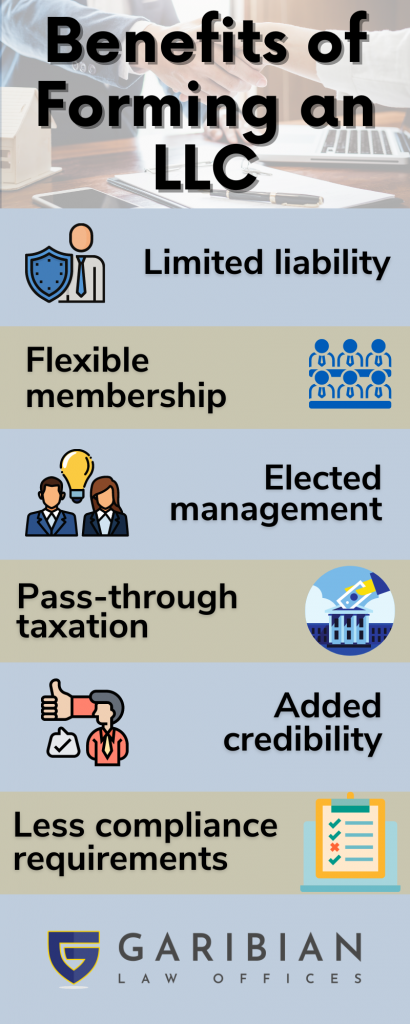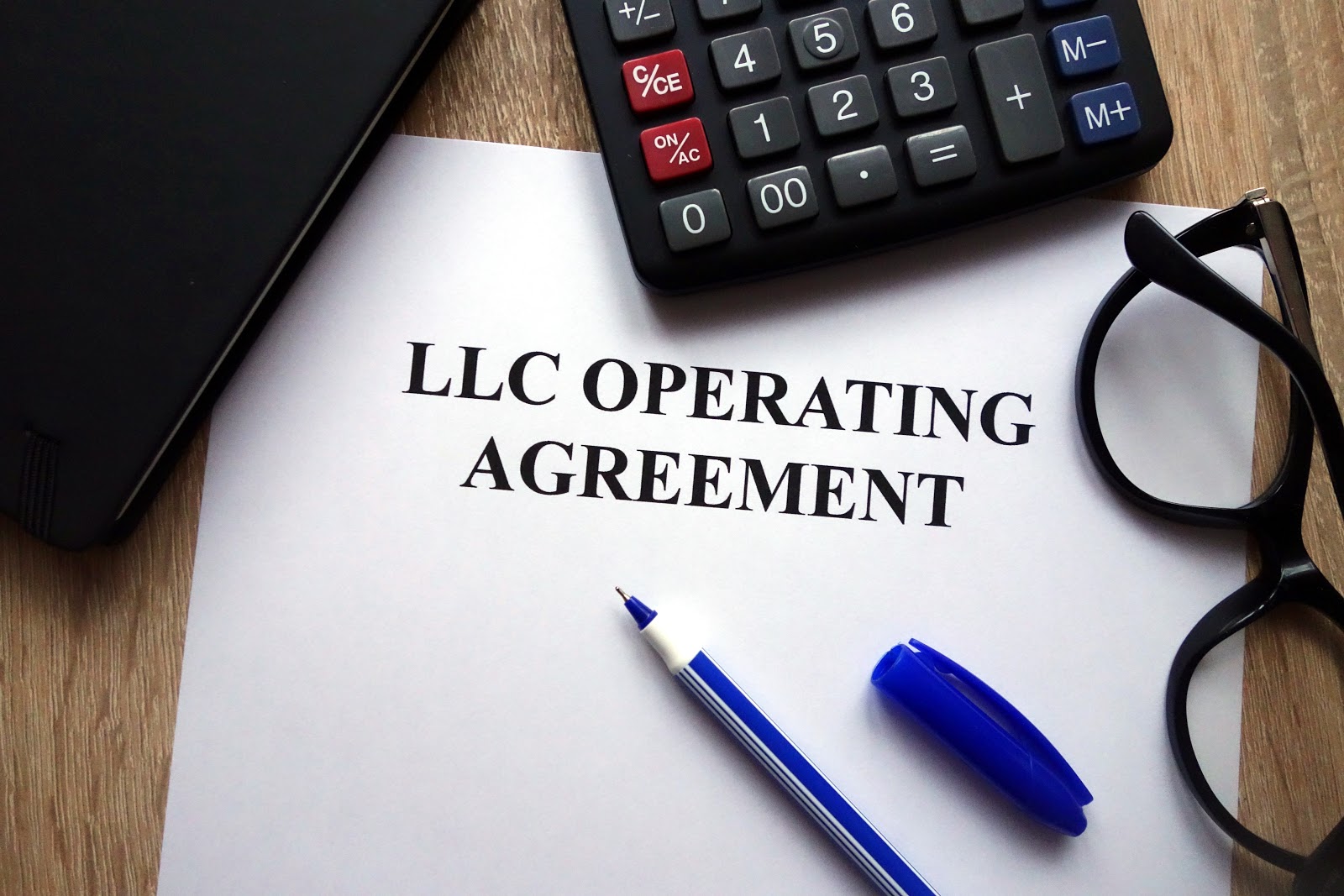A limited liability company, also known as an LLC, is a business entity separate from the business owner. Like larger companies and corporations, an LLC is its own entity and can protect its owners from personal liability.
What Are the Benefits of Forming an LLC?
There are many benefits of forming an LLC as opposed to operating your business under your own personal name.

Benefits of forming an LLC include:
- Limited liability: As the name suggests, members of the LLC and their personal assets are generally protected. This means creditors and business debts cannot reach your personal assets. Unfortunately, if proper procedures are not followed, this protection may not be enforced by a court.
- Flexible membership: Members of an LLC can be an individual, trust, corporation, or partnership.
- Elected management: While corporations are run by a board of directors, an LLC can be run by its members or an elected management group.
- Fewer compliance requirements: LLCs are generally more flexible in administration than other traditional corporate entities.
The Process of Forming an LLC
Before you form your LLC, you need to ensure that it is done properly and in accordance with state procedures. Though LLCs are subject to fewer compliance requirements than corporations and sole proprietors, there are some compliance tasks to complete for your LLC to be properly formed.
Pick a state to form your LLC
If anything, this part of the process requires the most research. Different states have different requirements, fees, and procedures. Delaware LLC formation is also a popular option.
Name your company
To register your LLC, you must pick a name that is not already registered in the state you chose to form your company. If you have previously operated as a sole proprietor, or you will be the only member of your LLC, you might consider registering your LLC as your legal name.
LLC names may be subject to trademark and copyright laws, so it is important that you cross-check your company name before you register to avoid future litigation.
Seek out a registered agent
If you are forming a new LLC or reregistering your company as a foreign LLC, you will likely need to appoint a registered agent. We can assist you with appointing a registered agent that fits your needs.
A registered agent for an LLC is responsible for receiving documents on behalf of the LLC. These documents can include government notifications, legal documents, and other important correspondences.
Draft an operating agreement
LLCs are governed by an operating agreement.
It is always advised to have a written operating agreement. A well-drafted operating agreement will ensure smooth operation of your company and protect the rights of the members. Banks and other lenders will often require an operating agreement before they will conduct business with an LLC.
File your paperwork
After you have considered the above, you are ready to file your LLC. As mentioned above, the process can be tedious and time-consuming. For this reason, some people choose to file with a lawyer or through LLC formation services. Fees will vary from state to state.
For more information about LLC formation and which state is right for you and your business, contact our team today!

